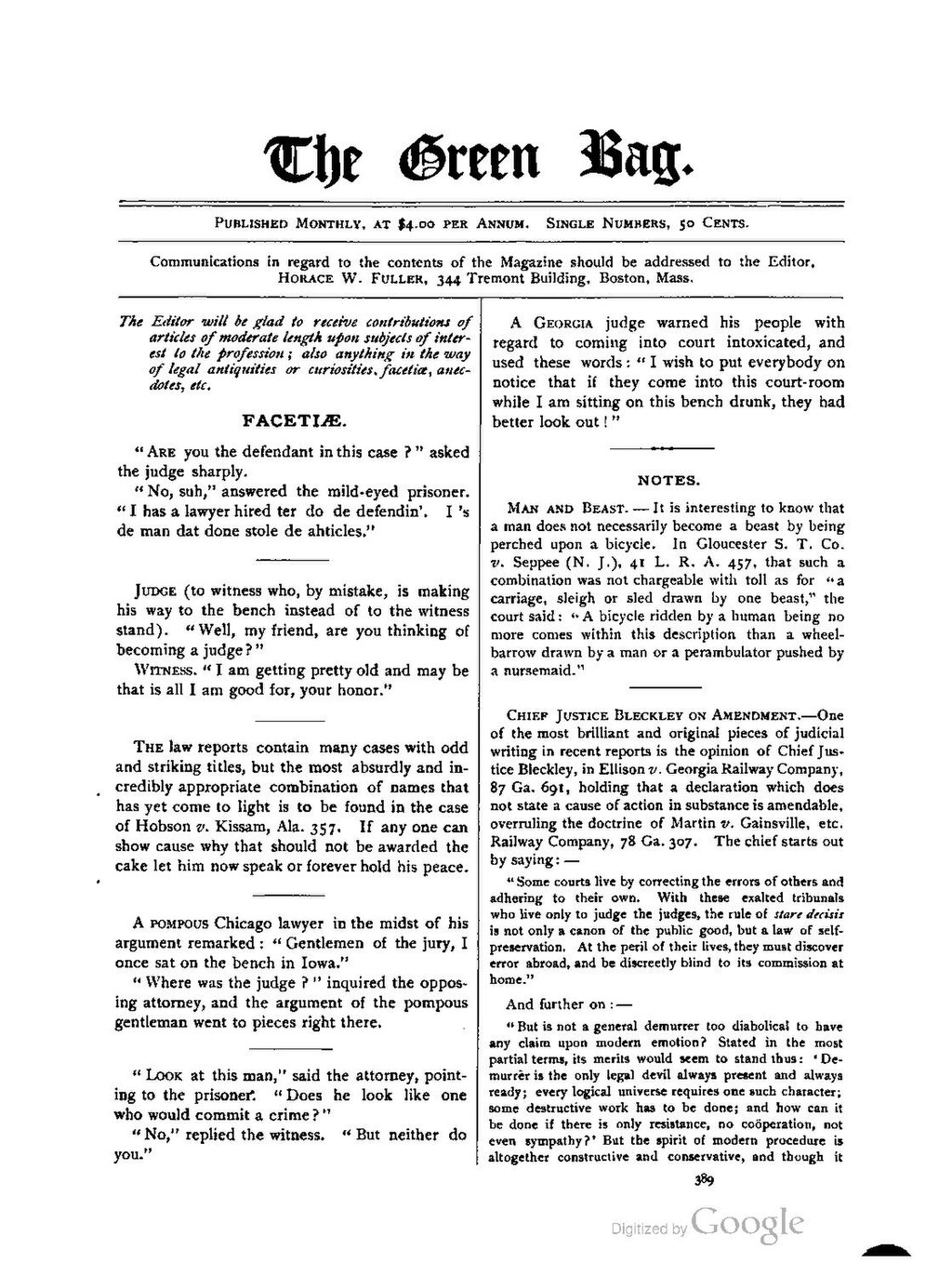The Green Bag (1889–1914) (Prior revision dated Saturday 16 September 2023 03:20:35 -- @180)
Introduction
The Green Bag (1889–1914) was an American legal journal addressed to the general reader. Founded by Horace W. Fuller, the Editor of the Central Law Journal, the magazine aimed to make the law more accessible to the public with its straightforward and lucid articles.
Publication History
Initiated in 1889, The Green Bag was established in Boston, Massachusetts, by a group of legal scholars led by Horace W. Fuller. This general-interest legal publication was relatively unusual for its time, attempting to make the law and its intricacies accessible to non-lawyers.
Content
The Green Bag was explicitly intended for non-lawyers and targeted a broad readership. It featured scholarly articles and legal opinion pieces written in a less formal tone than traditional legal texts. These articles discussed contemporary legal issues, prominent court cases, and profiles of eminent judges and attorneys.
The magazine was distinctively recognized for its 'Court of Last Resort,' which analyzed high-profile legal disputes in a comprehensible language for the layman. This blend of scholarship with public appeal was a unique feature of The Green Bag and its lasting legacy.
Influence and Impact
Despite its relatively short lifespan, The Green Bag profoundly impacted the public understanding of the law. By making the law accessible to everyday readers, it bridge the gap between legal comprehension and the layman, prompting discourse about legal matters beyond professional circles.
Revival
In 1997, The Green Bag was revived under the full title 'The Green Bag: An Entertaining Journal of Law.' This resurrection was in the spirit of the original publication, providing scholarly yet friendly perspectives on legal studies to the public.{{Categories}}